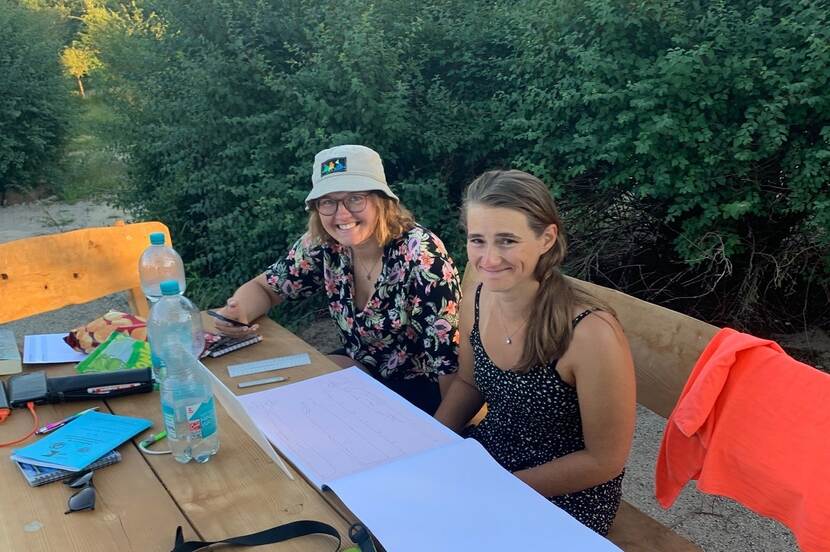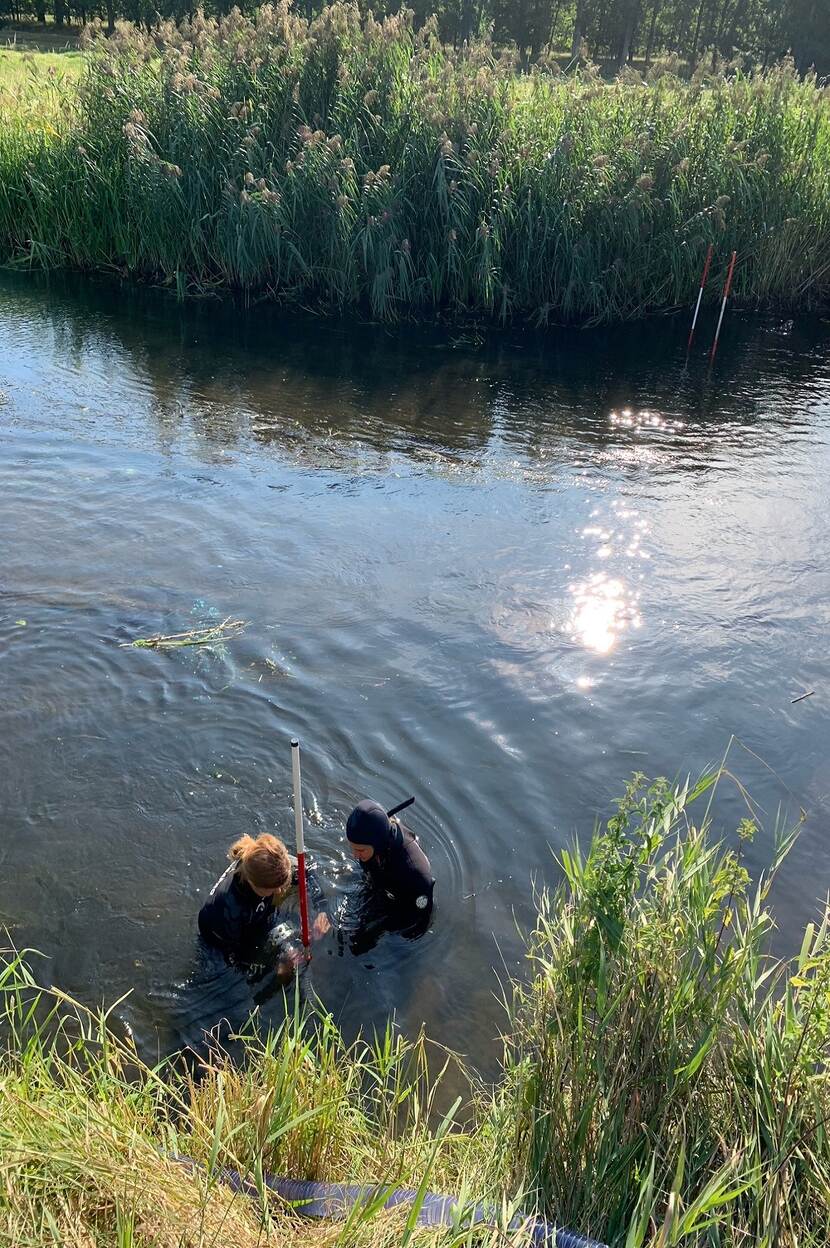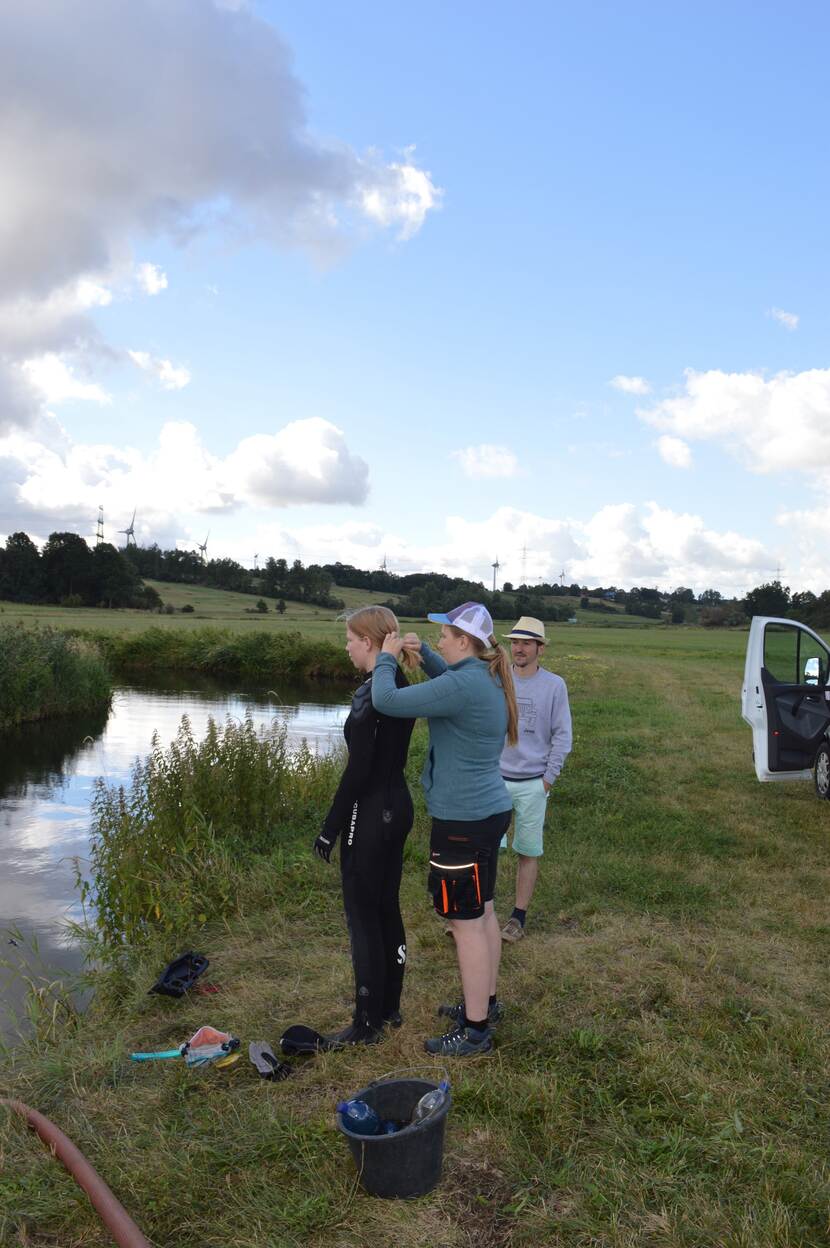Tollense field school - Part 4
Weblog
During the first two weeks of August 2022, students from Leiden University, University of Rostock and University of Göttingen have joined the Tollense Field school to research an archaeological site in the Tollense Valley in northern Germany. The Cultural Heritage Agency participates in this field school to support capacity-building of a younger generation maritime archaeologists and to facilitate international knowledge exchange. In these series of blogs, students and partners tell about their experiences. Read more about this international field school and the Tollense Valley in the first blog. In this blog, student Amber Ijsveld tells about her experience as site director.
At the archaeological site in Tollense, Germany, we have a site director. Every day, this is someone else and this person is in charge of all the activities that take place. Monday the 8th of August, I was the site director. This basically means that at the beginning of the day, I had a meeting with Martijn Manders (professor maritime archaeology of Leiden University) and Jens Auer (archaeologist of Mecklenburg – Vorpommern and who has final responsibility for this project). During this meeting, we discussed the forthcoming activities and things to pay attention to.

After the meeting, as the site director, I led the dive team meeting. As site director you tell the team what has to be done and you appoint who is doing what task. There is always one team that goes in the water as soon as possible, and the others have loads of stuff to do on land in order to make the divers able to perform their duties underwater. At the beginning of the day, we set everything up and made sure that the needed equipment was out of the vans.

As soon as a team goes in the water, you have to check the individual divers, write the time and fill in the necessary forms. Furthermore, after each dive, you make sure the divers fill in a log in which they write down what they did, how they did it and if there were any other remarks. It is the task of the site director to make sure that all these things are done and that the dive operation runs smoothly. The final things you do as site director are to write a report about the day, present the activities and results of the day during the debriefing that is planned every evening before dinner, and help to start planning the activities for the next day. Afterwards, you hand everything over to the next site director.
Keeping track of the team
When there is a team in the water, you make sure you keep track of time. As soon as divers get cold or tired, you have to make sure the next team is ready to go in. Along the riverbank, there is always one person watching the water, because the divers could get into trouble or they need something. We also have canoes passing by to warn us about the divers when they need something. It takes some planning and shifting people around, but mostly you have to keep track of a lot of things at the same time. It makes it complicated but also more interesting.

At the beginning of this day, I was a bit nervous. However, it turned out to be a great experience. I learned a lot about working in a team but also about working with a team. Furthermore, I learned that there is a lot more going on behind the scenes than I expected. Normally you have a professor who is in charge and makes sure everything is taken care of. When you are site director, you take over a large part of that. You are not totally on your own, it feels like that in the beginning but then you relax a bit and you have discussions with the team or the professors about the next step. It can happen that you have made a schedule and then something comes in between so you will have to make a change. For example: when you find something, it has to be measured, documented and then you can take it out of the water. This stretches your schedule.
We do have a large dive team, but the water was so cold the day I supervised that we had to make a lot of switches. It sometimes takes some time to find people who are available to go in the water when the schedule is changing, because everyone is working on something. The people who are not diving or doing anything else at that moment, are helping the land teams from Rostock and Göttingen.
I would really recommend to be a site director for at least a day. You get to know a different side of the project. You especially learn how to communicate well, which is really important for such a complex site. Also, when it comes to diving, there are a lot more risks which you have to consider. It is helpful to have a well communicated plan so the teams can work safely and steadily. That is also why we have multiple meetings a day, especially on more complicated days. Being a site director is a really great learning experience that fits a field school!